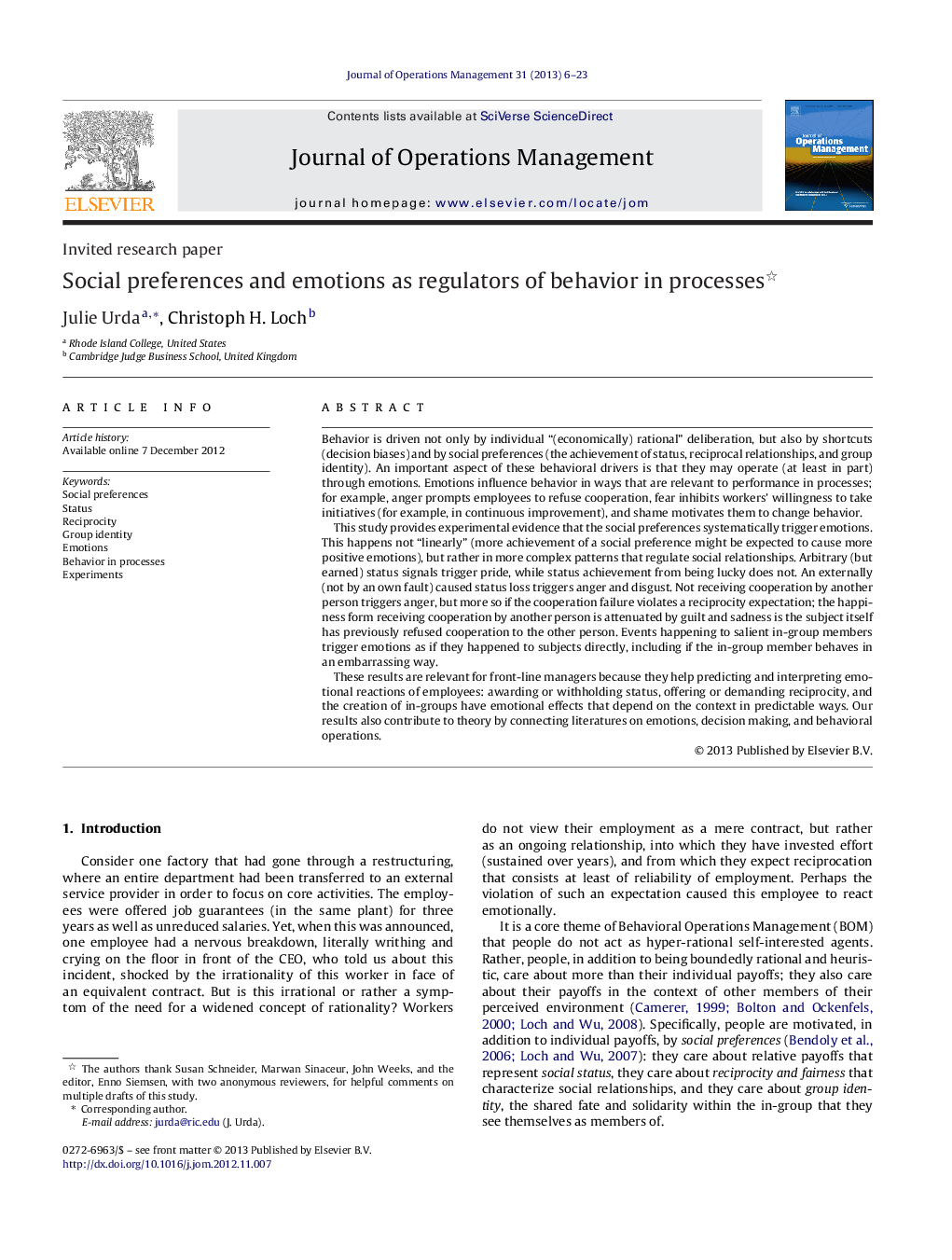| Article ID | Journal | Published Year | Pages | File Type |
|---|---|---|---|---|
| 1031771 | Journal of Operations Management | 2013 | 18 Pages |
Behavior is driven not only by individual “(economically) rational” deliberation, but also by shortcuts (decision biases) and by social preferences (the achievement of status, reciprocal relationships, and group identity). An important aspect of these behavioral drivers is that they may operate (at least in part) through emotions. Emotions influence behavior in ways that are relevant to performance in processes; for example, anger prompts employees to refuse cooperation, fear inhibits workers’ willingness to take initiatives (for example, in continuous improvement), and shame motivates them to change behavior.This study provides experimental evidence that the social preferences systematically trigger emotions. This happens not “linearly” (more achievement of a social preference might be expected to cause more positive emotions), but rather in more complex patterns that regulate social relationships. Arbitrary (but earned) status signals trigger pride, while status achievement from being lucky does not. An externally (not by an own fault) caused status loss triggers anger and disgust. Not receiving cooperation by another person triggers anger, but more so if the cooperation failure violates a reciprocity expectation; the happiness form receiving cooperation by another person is attenuated by guilt and sadness is the subject itself has previously refused cooperation to the other person. Events happening to salient in-group members trigger emotions as if they happened to subjects directly, including if the in-group member behaves in an embarrassing way.These results are relevant for front-line managers because they help predicting and interpreting emotional reactions of employees: awarding or withholding status, offering or demanding reciprocity, and the creation of in-groups have emotional effects that depend on the context in predictable ways. Our results also contribute to theory by connecting literatures on emotions, decision making, and behavioral operations.
